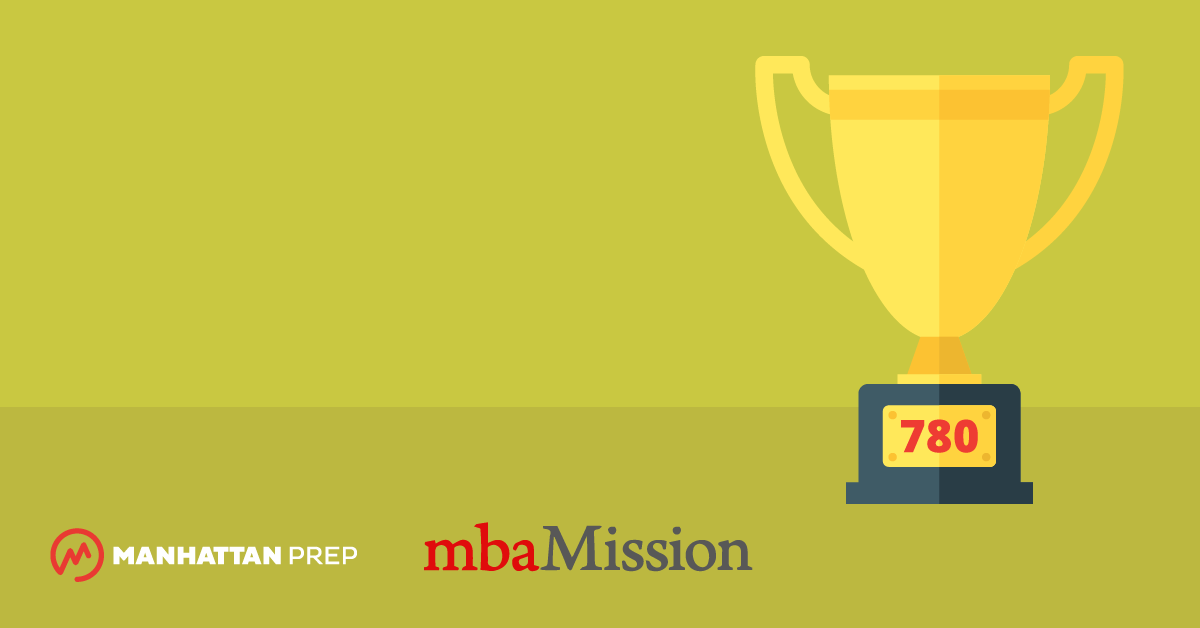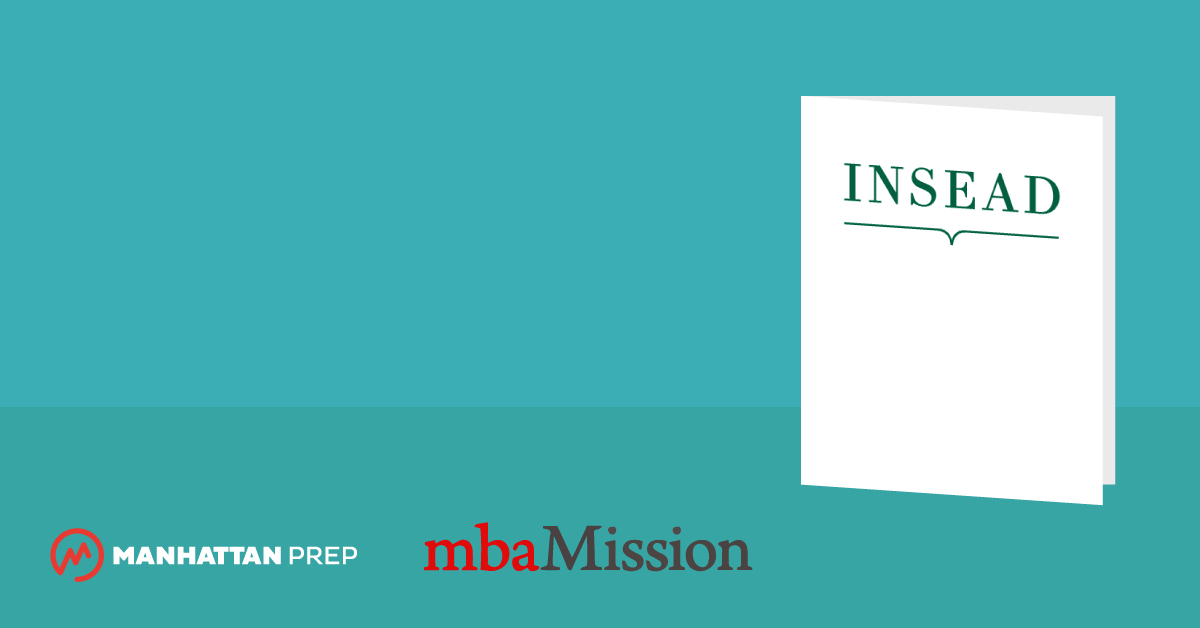MBA Admissions Myths Destroyed: My High GMAT Score Will Get Me In

What have you been told about applying to business school? With the advent of chat rooms, blogs, and forums, armchair “experts” often unintentionally propagate MBA admissions myths, which can linger and undermine an applicant’s confidence. Some applicants are led to believe that schools want a specific “type” of candidate and expect certain GMAT scores and GPAs, for example. Others are led to believe that they need to know alumni from their target schools and/or get a letter of reference from the CEO of their firm in order to get in. In this series, mbaMission debunks these and other myths and strives to take the anxiety out of the admissions process.
So, you have taken the GMAT and exceeded even your highest expectations, scoring at the very top of the scale. Congratulations! However, do not assume that earning such a high GMAT score means you can relax with respect to the other components of your application. Every year, applicants who have scored 750 or higher are rejected from their target business schools—even when their GMAT score falls within the top 10% of the schools’ range. Many of these candidates were rejected because of a fatal, but ultimately avoidable, mistake: they became overconfident and assumed their high GMAT score alone would get them in. Read more
Mission Admission: Visiting B-School Campuses Multiple Times, and a Reminder on Best Behavior!

Mission Admission is a series of MBA admissions tips from our exclusive admissions consulting partner, mbaMission.
Many MBA applicants set their sights on more than one b-school. In the fortunate case that a candidate does gain admission to multiple business schools, how does he/she choose between two (or more)? If you cannot determine a definitive “winner” based on specific academic or professional criteria, you may now need to make a b-school campus visit or, for some, another campus visit. If you have not yet had a chance to visit your target school(s), we advise you to get to know the program(s) better before deciding where to invest two years and $100k or more. However, even if you have already visited your target b-school campuses, this may be a good time for a second, more focused trip. Read more
Mission Admission: Waiting Patiently for B-School Interview Invitations? Consider What to Expect

Mission Admission is a series of MBA admission tips from our exclusive admissions consulting partner, mbaMission.
As b-school interview invitations begin to roll out, do your best to remain calm and let the admissions committees do their work. Although becoming a little apprehensive is natural if you have not yet received an invitation, you will certainly not increase your chances of receiving one by calling the admissions office and asking if the school does indeed have all your files or if an interview decision has been made. In fact, such calls can actually have a negative effect on your candidacy, inadvertently making you seem pushy or even belligerent. Read more
Mission Admission: Finding “Safe” Writers for Your MBA Recommendation Letters

What have you been told about applying to business school? With the advent of chat rooms, blogs, and forums, armchair “experts” often unintentionally propagate MBA admissions myths, which can linger and undermine an applicant’s confidence. Some applicants are led to believe that schools want a specific “type” of candidate and expect certain GMAT scores and GPAs, for example. Others are led to believe that they need to know alumni from their target schools and/or get a letter of reference from the CEO of their firm in order to get in. In this series, mbaMission debunks these and other myths and strives to take the anxiety out of the admissions process.
MBA recommendation letters are an important part of your overall application package—they provide the only outside information the admissions committee receives about you. However, one of the most stressful parts of the application process can be choosing your recommenders. Read more
MBA Admissions Myths Destroyed: Well, I Had My Chance on the GMAT

What have you been told about applying to business school? With the advent of chat rooms, blogs and forums, armchair “experts” often unintentionally propagate MBA admissions myths, which can linger and undermine an applicant’s confidence. Some applicants are led to believe that schools want a specific “type” of candidate and expect certain GMAT scores and GPAs, for example. Others are led to believe that they need to know alumni from their target schools and/or get a letter of reference from the CEO of their firm in order to get in. In this series, mbaMission debunks these and other myths and strives to take the anxiety out of the admissions process.
You finally took the GMAT, and though your score was not bad, it was not what you had hoped—not your best score, but certainly not so low that you need to take the test again. With a score just below where you think you should be, should you risk it all and take the test again? The truth is that there is actually no risk in taking the GMAT a second—or even a third—time in pursuit of a better outcome. Read more
Wharton Team-Based Discussion 2017: What to Expect and How to Prepare

Each week, we are featuring a series of MBA admissions tips from our exclusive admissions consulting partner, mbaMission.
The Wharton School at the University of Pennsylvania sent out Round 1 interview invitations on October 31, and once again, the school is using its team-based discussion format rather than a traditional admissions interview to evaluate its candidates. Understandably, Wharton applicants get anxious about this atypical interview, because the approach creates a very different dynamic from what one usually encounters in a one-on-one meeting—and with other applicants also in the room, one cannot help but feel less in control of the content and direction of the conversation. Yet despite the uncertainty, here are a few things that Wharton team-based discussion interviewees can expect: Read more
Dartmouth Tuck Essay Analysis, 2017-2018

How can you write essays that grab the attention of MBA admissions committees? With this thorough Dartmouth Tuck essay analysis, our friends at mbaMission help you conceptualize your essay ideas and understand how to execute, so that your experiences truly stand out.
The Tuck School of Business at Dartmouth College has remained largely constant with its first essay question this year, making just a slight change in wording that does not appear to affect the content requested—the candidate’s career goals, why an MBA is needed to achieve them, and his or her reasons for targeting Tuck. The school’s second required essay prompt has changed notably, however. Applicants are now asked to share the story of a difficult time and to explain how they responded and how the incident altered their understanding of themselves. An optional essay is also available to allow those who truly need to to address any weaknesses in their candidacy. Although none of the essays should exceed 500 words (approximately three times the length of this introductory paragraph), we feel that together, they give candidates sufficient opportunity to provide the admissions committee with a multifaceted impression of themselves for evaluation. In our Dartmouth Tuck essay analysis, we offer our advice for approaching each of Tuck’s prompts for this season… Read more
Mission Admission: Why a Personalized MBA Recommendation Matters, but Details Sometimes Do Not

Mission Admission is a series of MBA admission tips from our exclusive admissions consulting partner, mbaMission.
If your supervisor is writing your MBA recommendation and you are having trouble ensuring that he/she is putting the proper thought and effort into your letter, you are not alone. Because of this asymmetry of power, a junior employee can only do so much to compel his/her supervisor to commit the necessary time and write thoughtfully. So, before you designate your supervisor as a recommender, you must first perceive how committed this person really is to helping you with your business school candidacy. In particular, your recommender needs to understand that using a single template to create identical letters for multiple business schools is not okay. Each letter must be personalized, and each MBA program’s questions must be answered using specific examples. Read more
mbaMission Releases INSEAD Insider’s Guide and Updated Interview Guides for 2017-2018

We at mbaMission are proud to announce a new addition to our extensive trove of free Insider’s Guides: the INSEAD Insider’s Guide! Informed by firsthand insight from students, alumni, program representatives, and admissions officers, the INSEAD Insider’s Guide offers detailed descriptions of the following: Read more
Duke Fuqua School of Business Essay Analysis, 2017-2018

How can you write essays that grab the attention of MBA admissions committees? With this thorough Duke Fuqua School of Business essay analysis, our friends at mbaMission help you conceptualize your essay ideas and understand how to execute, so that your experiences truly stand out.
Unlike a number of the top U.S. business schools, Duke University’s Fuqua School of Business has made no changes at all to its application essay questions this year, meaning that it is again posing its rather unique “25 Random Things” prompt. This decision will likely make some candidates happy but dismay others. If you are among the dismayed, we encourage you to view this submission as the generous opportunity it is to provide a comprehensive picture of yourself as a well-rounded candidate. Few application essays provide such a broad platform through which to share your most meaningful values, experiences, interests, and accomplishments. Fuqua’s second required essay focuses on candidates’ expectations of their role within the school’s MBA program. You must discuss how you anticipate engaging with and being a benefit to others in the Fuqua community. The school also poses a few short-answer goal questions concerning the basic professional elements of the applicant’s profile. In our Duke Fuqua School of Business essay analysis, we offer our advice for approaching each of Fuqua’s prompts for this season… Read more